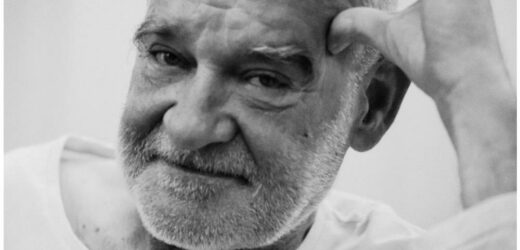Legendary Hungarian director Béla Tarr is at peace.
“It’s time for the old guys to leave. Retire, enjoy the sun,” he tells Variety in Cairo.
Tarr, in town to collect his lifetime achievement award and lead a workshop for young filmmakers, stopped making feature films after 2011 “The Turin Horse.” He has no intention of going back on his word.
“Everyone knew it was going to be my last. I knew that if I manage to make this movie, I won’t be able to say more. The language I have been creating became perfect. It’s ready and packed, so take it or leave it. It’s up to you now,” he says.
“You can’t repeat yourself, it’s boring and fake. We all know these guys who had some success 30 years ago and they keep using the same recipe. But something that was powerful 30 years ago is not powerful today. We have moved on.”
Celebrated – and despised – for his unique style, Tarr also discussed it during a masterclass.
“My takes became longer and longer, because I was thinking about time and cinema was ignoring it. The logic is action – cut, action – cut. But day by day, we become older, different. Weaker. I guess I wanted to understand something about the world,” he says.
These days, he is more interested in showing young filmmakers how to be themselves, he says. In 2012, Tarr founded film school film.factory in Sarajevo. Now, he teaches all over the world.
“You know, when I say I am ‘teaching,’ it’s not education. It’s liberation.”
“The biggest problem with education is when a teacher tells you the ‘right’ way to do things. But now, you can make a movie with your phone. There are no rules anymore. You are free! I will be there, sure, but it’s never about [imposing] my point of view.”
During his masterclass, Tarr admitted he only ever cared about his actors’ personalities.
“I didn’t care if someone was a professional actor, like Tilda Swinton [who acted in ‘The Man from London’] or Hanna Schygulla. [‘Werckmeister Harmonies’ star] Lars Rudolph was a street musician when I met him. All I cared about was who they really are. How do you react?”
“It’s a dirty job, being a filmmaker. You are stealing their emotions, taking their heart out. I have to open up to you and you have to open up to me. On our set, Tilda Swinton wasn’t an ‘actor.’ She was an open person.”
It’s the same with his students.
“It’s tiring sometimes, because my empathy and sensibility are all used up. But it’s all about what you want. Do you want to be a part of the film industry, do you want to make a profit or do you want to be free? Without freedom, you can’t do anything,” he adds.
“I get so angry when someone complains they are not getting things funded. Complain if you want, but you will only waste your life. The thing is, you don’t need money. Just go and work. When I was 22 and making my first movie [‘Family Nest’], we didn’t have anything.”
Another thing that annoys him? Blindly sticking to the script, he said during his masterclass.
“There are so many people sitting at their desks and just writing and writing, and then they have a fucking piece of paper without life. Life is in front of you. You need to understand its logic, see the people.”
Which is what he is currently doing. With more workshops coming, Tarr is also eyeing new multimedia events like 2019 “Missing People,” blending film, visual art and performance. His next might be casino-themed, he says.
“This is interesting to me, as a ‘retired filmmaker,’” he laughs.
So is supporting his students, with Tarr recently credited as an executive producer on Valdimar Jóhannsson’s Nordic Council Prize winner “Lamb,” featuring Noomi Rapace and a rather unusual creature.
“The Icelanders… They are amazing. Valdimar was my student in Sarajevo. I love this guy and I liked his romantic idea. I helped out the way I could, but it’s his movie,” he says.
“I am just this grandfather and I sent out many, many children into the world. Whenever I land somewhere, I am sure at least three of them are already waiting for me. Because we love each other – we were a family.”
“With film.factory, it was an open house. People came from all over the place, they were different and yet all of them understood that we have to respect these differences. It was as obvious to us as the fact that the sun is shining.”
While Tarr is navigating different roles these days – “Someone used to call me a ‘film fighter.’ I used to be so many things” – he remains an outsider. And he likes it this way.
“I never respected traditional filmmaking, never been a part of the industry. I just tried to be brave,” he says.
“This linear storytelling, it’s so fucking boring. You don’t believe in it, don’t see these relationships develop, there are no human emotions. That’s why I don’t watch Oscar-winning films. Sometimes I feel sorry for these directors. Why are they doing it?! Such talented people, trying to please everyone with their comic books.”
“I am not saying it always has to be naturalistic, but you have to make sure you are there. You, as a person. When I go to the cinema, I want to see the director.”
“When I decided to make ‘Sátántangó,’ which ended up as this seven-hour movie, everyone thought I was crazy. Now, they are still showing it, but I swear, I didn’t think about it back then. When you are making a film, you are not thinking if it will be successful. You shouldn’t, at least. It’s not your job to judge it. Time will do it for you.”
Read More About:
Source: Read Full Article


